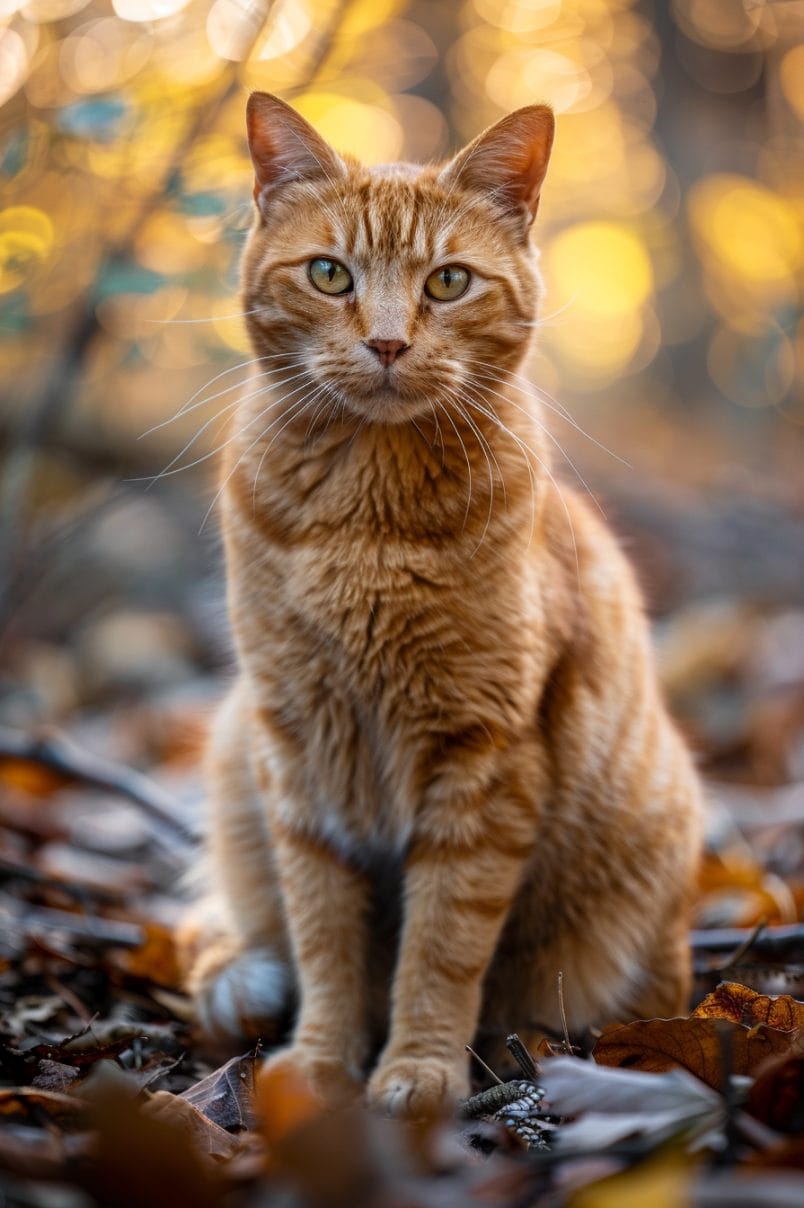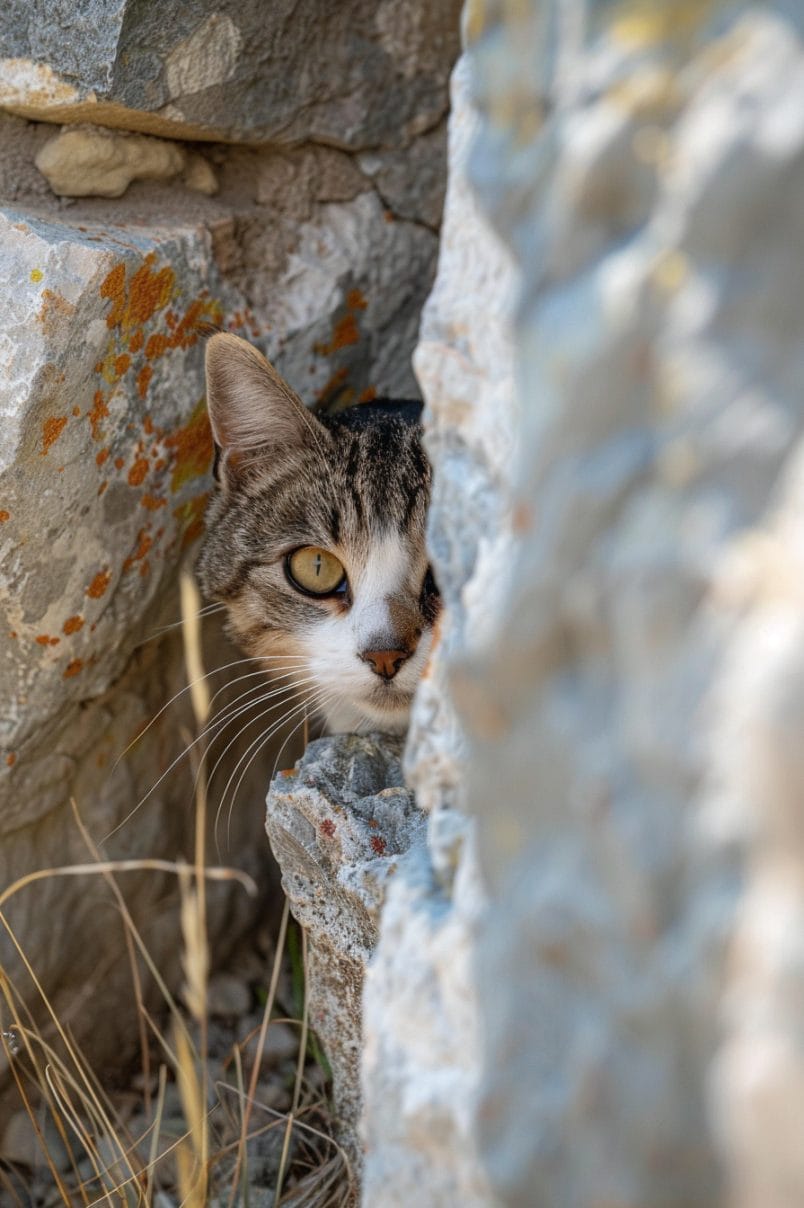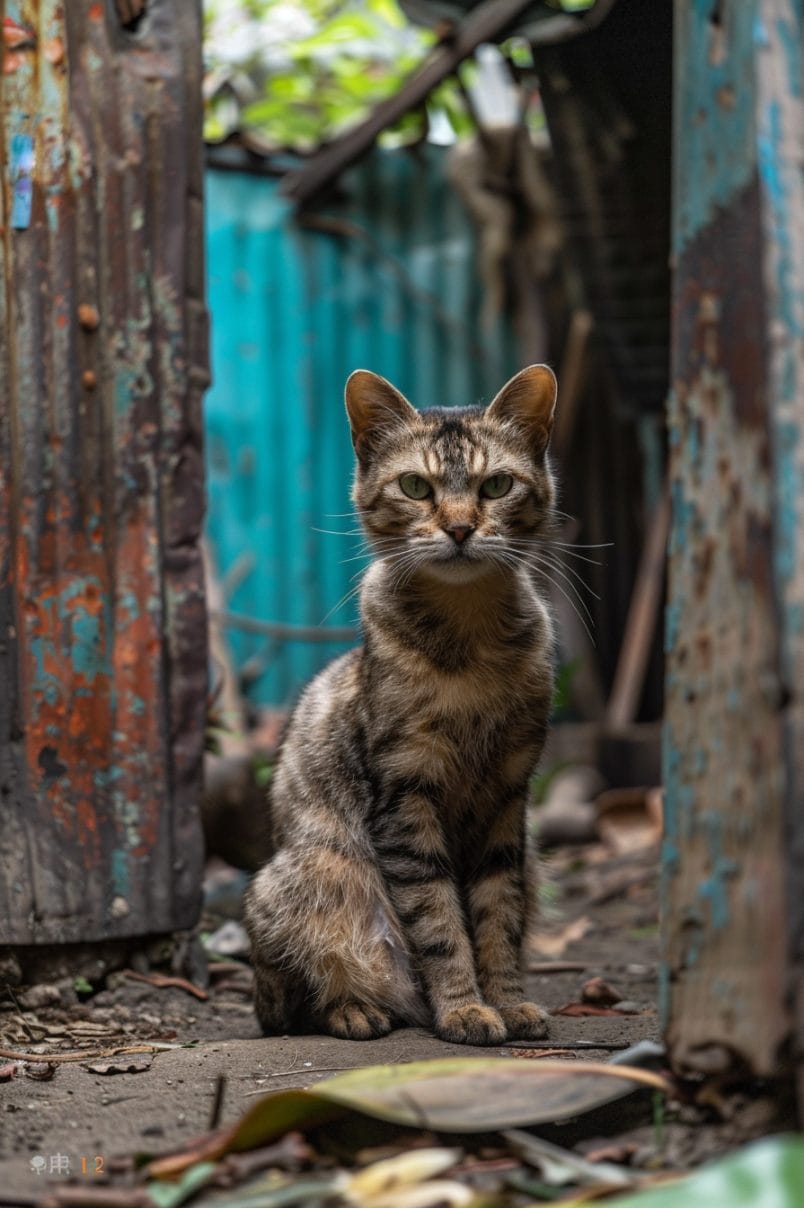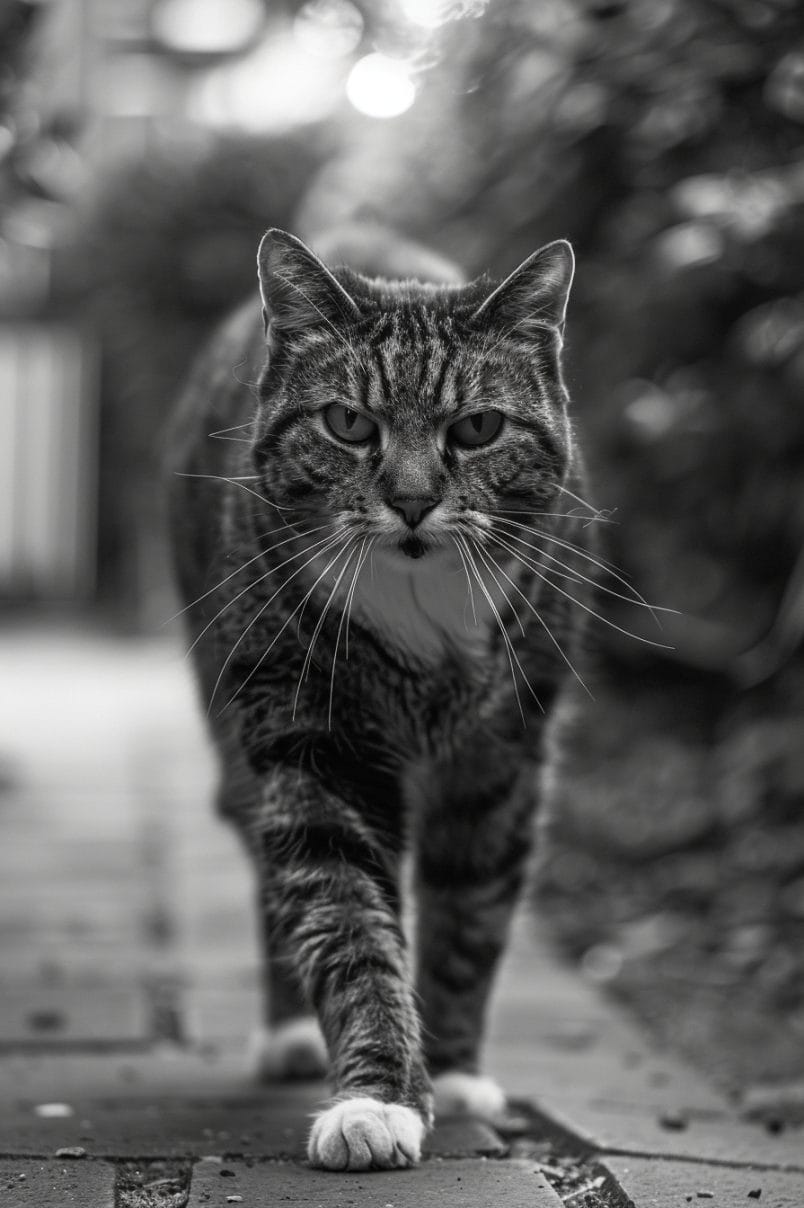
Socializing a feral kitten can be a rewarding experience, but it requires patience, dedication, and a gentle approach.
Feral kittens are often abandoned or orphaned, and their lack of human interaction can make them wary of people.
However, with the right techniques and a nurturing environment, you can help these kittens become friendly and adaptable.
In this article, we’ll explore the challenges and rewards of socializing feral kittens, provide tips on how to do it effectively and discuss the timeframe involved.
Challenges and Rewards of Socializing Feral Kittens
Challenges
Socializing feral kittens can be a daunting task.
These little ones are often born in the wild or have had minimal human contact, making them naturally fearful and distrustful of people.
They don’t understand human behavior and often see people as threats.
Here are some common challenges you might face:
Fear and mistrust
Feral kittens are typically very scared of humans.
They may hiss, spit, scratch, or bite to defend themselves.
Their instinct is to see you as a predator.
Lack of socialization
These kittens haven’t learned how to interact with people.
They might not know how to play gently or respond to being petted.
It takes time and patience for them to learn these behaviors.
Survival strategies
Feral kittens are used to relying on their instincts to survive.
This often means hiding, running away, or being aggressive.
Teaching them that they can rely on humans for food and safety is a slow process.
Health issues
Feral kittens might come with a host of health problems, including fleas, worms, and other illnesses.
Handling them to administer medicine or take them to the vet can be stressful for both the kitten and the caregiver.
Rewards
Despite the challenges, socializing feral kittens can be incredibly rewarding.
The benefits extend to both the kittens and the caregivers. Here are some of the main rewards:
Increased adaptability
Once feral kittens are socialized, they become much more adoptable.
Friendly, well-adjusted kittens are more likely to find loving homes.
This means fewer cats living on the streets and more cats in safe, caring environments.
Improved health
Socialized kittens are more likely to receive regular medical care.
They get vaccinated, dewormed, and treated for any health issues.
This leads to healthier, happier lives.
Enhanced quality of life
Socialized kittens can form strong bonds with their caregivers.
They learn to trust and enjoy human company, which makes their lives much more fulfilling.
They can play, cuddle, and live without the constant fear of survival.
Personal fulfillment
For the caregiver, the process of socializing a feral kitten can be deeply satisfying.
Watching a scared, timid kitten grow into a confident, loving companion is an incredible experience.
It takes patience and dedication, but the bond formed is unique and rewarding.

Tips on How to Socialize Your Feral Kitten
Socializing a feral kitten can be a rewarding journey, but it requires a lot of patience, gentleness, and consistency.
Here are some detailed tips to help you successfully socialize your feral kitten:
Start with small steps
Begin by creating a safe and quiet space for the kitten.
This could be a small room or a large crate where the kitten can feel secure.
Spend time sitting near the kitten without trying to touch or pick it up.
Simply being present will help the kitten get used to your scent and presence.
Speak softly and offer treats to build a positive association.
Gradually, as the kitten becomes more comfortable, you can increase the amount of time you spend near them and slowly move closer.
Gentle handling
Once the kitten starts to relax and shows less fear around you, it’s time to introduce gentle handling.
Approach the kitten slowly and with calm movements.
Pick them up gently, keeping sessions short at first to avoid overwhelming them.
Over time, as the kitten becomes more comfortable with being handled, you can increase the duration of these sessions.
Always offer treats and gentle praise to reinforce that being handled is a positive experience.
Use positive reinforcement
Positive reinforcement is crucial in the socialization process.
Reward the kitten with treats, affection, and kind words whenever it exhibits friendly behavior.
For example, if the kitten comes closer to you, doesn’t run away when you approach, or allows you to pet it, give it a treat and some gentle praise.
This will help the kitten associate human interaction with positive outcomes, encouraging more of the same behavior.
Provide a safe environment
Ensure the kitten has a safe and comfortable space to retreat to if it feels overwhelmed.
This can be a cozy cardboard box, a soft bed, or a designated “safe zone” within their living area.
Having a secure place to escape to can help reduce the kitten’s stress levels and make it feel more in control.
Make sure this space is easily accessible and always available for the kitten to use whenever it feels the need to retreat.
Be consistent
Consistency is key when socializing a feral kitten.
Establish a routine for feeding, handling, and interacting with the kitten, and stick to it.
Regular, predictable interactions help the kitten feel more secure and understand what to expect.
Over time, this consistency will help the kitten build trust and feel more comfortable around you.
Additional tips
- Use toys: Interactive toys can be a great way to engage with the kitten and build trust.
- Slow and steady: Remember that socializing a feral kitten is a marathon, not a sprint. Progress may be slow, and there will be setbacks.
- Observe body language: Pay close attention to the kitten’s body language. Signs of fear or stress include flattened ears, hissing, and a puffed-up tail.
- Seek professional help: If the kitten is particularly fearful or aggressive, consider seeking advice from a veterinarian or a professional animal behaviorist.

How Long Does It Take to Socialize a Feral Cat?
The timeframe for socializing a feral kitten can vary depending on several factors, including the kitten’s age, temperament, and the frequency and quality of social interactions.
Generally, it can take several weeks to several months to socialize a feral kitten. Here are some general guidelines:
Kittens Under 12 Weeks
Timeframe: 2-4 Weeks
Young kittens, especially those under 12 weeks old, are generally more adaptable and open to new experiences.
Their young age makes them more impressionable, and they can learn to trust humans relatively quickly.
Here’s what to expect during this period:
Week 1
During the first week, focus on creating a safe and calm environment for the kitten.
Spend time sitting near them, speaking softly, and offering treats.
The goal is to help them get used to your presence without feeling threatened.
Week 2
By the second week, the kitten should start to show signs of curiosity and less fear.
You can begin gentle handling sessions, gradually increasing the duration as the kitten becomes more comfortable.
Continue using treats and positive reinforcement to build trust.
Weeks 3-4
In the following weeks, the kitten should become more relaxed and willing to interact with you.
Playtime with interactive toys can help strengthen your bond.
By the end of the fourth week, many kittens under 12 weeks old will be well on their way to being socialized, showing affection and seeking out human interaction.
Kittens Over 12 Weeks
Timeframe: 3-6 Months
Older kittens, particularly those over 12 weeks old, tend to be more set in their ways and may have developed stronger survival instincts.
Socializing these kittens requires more time and patience:
First month
During the first month, focus on building trust slowly.
Spend time near the kitten without forcing interaction.
Use treats and toys to create positive associations with your presence.
The kitten may still be very wary and prefer to keep their distance.
Months 2-3
Over the next couple of months, you should notice gradual improvements.
The kitten might start to approach you more willingly and show interest in playtime.
Gentle handling can begin but keep sessions short and calm.
Consistency is crucial, so maintain a regular routine of feeding, playing, and gentle interaction.
Months 4-6
By this stage, the kitten should be showing significant progress.
They might allow more frequent handling and start to seek out your attention.
Continue to use positive reinforcement and provide a safe environment for the kitten to retreat to if they feel overwhelmed.

Factors Affecting Socialization Time
Socializing a feral kitten is a process that depends on several factors, each influencing how quickly the kitten can become comfortable around humans and trust them.
Individual temperament
Just like people, each kitten has its own personality.
Some kittens are naturally curious and outgoing, making them more willing to interact with humans from the start.
These kittens might approach you sooner and show less fear.
On the other hand, some kittens are more cautious and reserved.
They may be very scared at first and take longer to warm up to people.
Previous experiences
The kitten’s history with humans also plays a crucial role.
Kittens who have had positive interactions with people, even if brief, tend to be more open to socialization.
For example, a kitten that has been fed by a kind person may already associate humans with food and safety.
Conversely, kittens who have had negative experiences or no human contact at all may be more fearful and take longer to trust humans.
Quality of interactions
Consistent, gentle, and positive interactions are essential for socializing feral kittens.
Spending time with the kitten in a calm and patient manner helps build trust over time.
Start by sitting near the kitten without approaching too quickly. Speak softly and offer treats to create positive associations.
As the kitten grows more comfortable, gradually increases the amount of physical contact and interaction.
Health and well-being
A kitten’s physical health directly affects its ability to socialize.
Kittens who are malnourished, sick, or infested with parasites may be more stressed and less responsive to socialization efforts.
Ensuring the kitten has a nutritious diet, appropriate veterinary care, and a clean living environment are crucial steps in supporting their overall well-being.

Conclusion
Socializing a feral kitten requires patience, dedication, and a gentle approach.
By understanding the challenges and rewards of socializing feral kittens, you can better prepare yourself for the process.
By following the tips outlined in this article, you can help a feral kitten become friendly and adoptable.
Remember to be consistent, patient, and gentle, and you’ll be well on your way to socializing a feral kitten.
FAQs
Look for signs of curiosity, such as exploring its surroundings or approaching you for food or attention. If the kitten shows these signs, it may be socializable.
Don’t force interaction. Instead, continue to provide a safe and comfortable environment, and gradually increase your presence and interaction over time.
Yes, but it’s recommended to work with a veterinarian or animal welfare organization for guidance and support.
While it’s more challenging to socialize an adult feral cat, it’s not impossible. With patience, consistency, and positive reinforcement, you can still help an adult feral cat become more friendly and adoptable.
- Does Cat Litter Melt Ice? The Complete Guide to Winter Safety - January 30, 2026
- Happy Tail Dogs: Understanding This Common Canine Condition - January 29, 2026
- How Cold Can Outdoor Cats Handle? Feline Winter Safety - January 27, 2026


GIPHY App Key not set. Please check settings